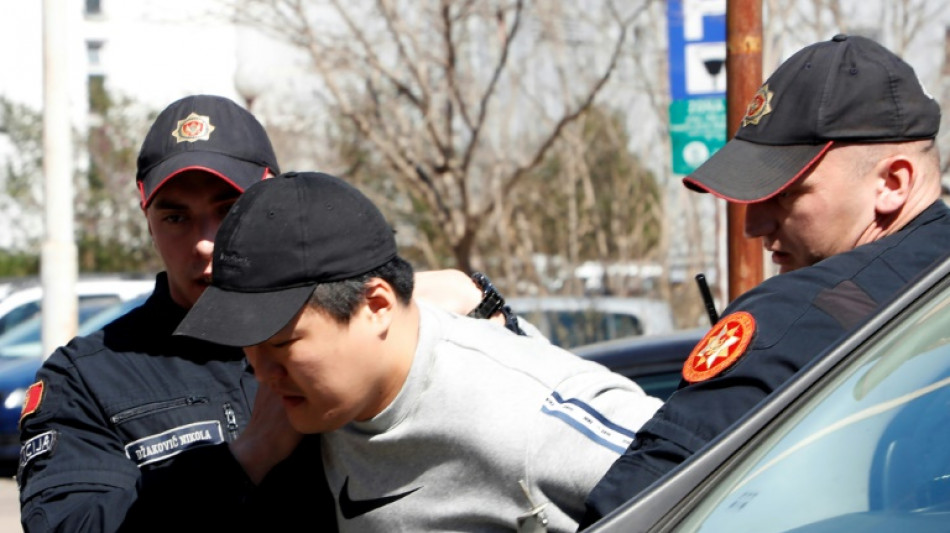
-
 Scorching 1,500m return for Olympic great Ledecky in Florida
Scorching 1,500m return for Olympic great Ledecky in Florida
-
Israel's Netanyahu warns wildfires could reach Jerusalem

-
 Istanbul lockdown aims to prevent May Day marches
Istanbul lockdown aims to prevent May Day marches
-
Australian guard Daniels of Hawks named NBA's most improved

-
 Mexico City to host F1 races until 2028
Mexico City to host F1 races until 2028
-
Morales vows no surrender in bid to reclaim Bolivian presidency
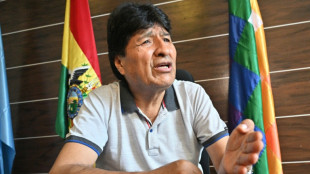
-
 Ukraine, US sign minerals deal, tying Trump to Kyiv
Ukraine, US sign minerals deal, tying Trump to Kyiv
-
Phenomenons like Yamal born every 50 years: Inter's Inzaghi

-
 Ukraine, US say minerals deal ready as Kyiv hails sharing
Ukraine, US say minerals deal ready as Kyiv hails sharing
-
Global stocks mostly rise following mixed economic data
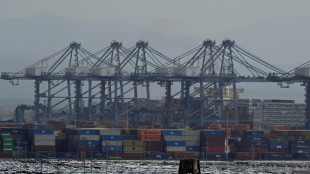
-
 O'Sullivan says he must play better to win eighth snooker world title after seeing off Si Jiahui
O'Sullivan says he must play better to win eighth snooker world title after seeing off Si Jiahui
-
Sabalenka eases past Kostyuk into Madrid Open semis

-
 Netflix's 'The Eternaut' echoes fight against tyranny: actor Ricardo Darin
Netflix's 'The Eternaut' echoes fight against tyranny: actor Ricardo Darin
-
US economy unexpectedly shrinks, Trump blames Biden
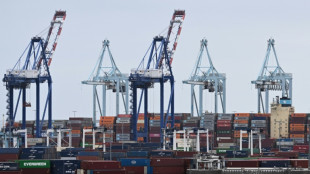
-
 Barca fight back against Inter in sensational semi-final draw
Barca fight back against Inter in sensational semi-final draw
-
Meta quarterly profit climbs despite big cloud spending
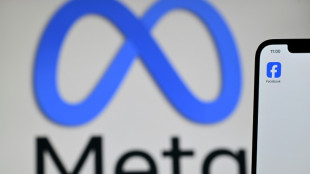
-
 US Supreme Court weighs public funding of religious charter school
US Supreme Court weighs public funding of religious charter school
-
Climate change made fire conditions twice as likely in South Korea blazes: study

-
 Amorim says not even Europa League glory can save Man Utd's season
Amorim says not even Europa League glory can save Man Utd's season
-
Syria reports Israeli strikes as clashes with Druze spread

-
 Ukraine, US say minerals deal ready as suspense lingers
Ukraine, US say minerals deal ready as suspense lingers
-
Everything is fine: Trump's cabinet shrugs off shrinking economy

-
 Chelsea boss Maresca adamant money no guarantee of success
Chelsea boss Maresca adamant money no guarantee of success
-
Wood warns England cricketers against 'dumb' public comments

-
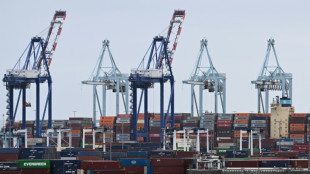 US economy shrinks, Trump blames Biden
US economy shrinks, Trump blames Biden
-
Caterpillar so far not hiking prices to offset tariff hit

-
 Japan's Kawasaki down Ronaldo's Al Nassr to reach Asian Champions League final
Japan's Kawasaki down Ronaldo's Al Nassr to reach Asian Champions League final
-
Trump praises Musk as chief disruptor eyes exit
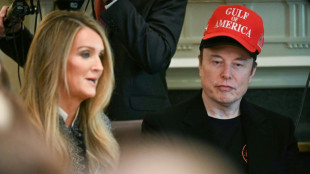
-
 Chahal hat-trick helps Punjab eliminate Chennai from IPL playoff race
Chahal hat-trick helps Punjab eliminate Chennai from IPL playoff race
-
Pope Francis saw clergy's lack of humility as a 'cancer': author
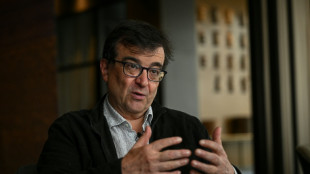
-
 Weinstein accuser recounts alleged rape at assault retrial in NY
Weinstein accuser recounts alleged rape at assault retrial in NY
-
Piastri heads into Miami GP as the man to beat

-
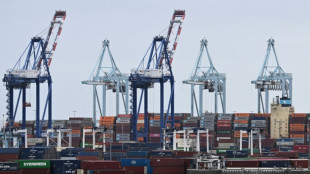 US economy unexpectedly shrinks in first quarter, Trump blames Biden
US economy unexpectedly shrinks in first quarter, Trump blames Biden
-
Maxwell likely to miss rest of IPL with 'fractured finger'

-
 Syria reports Israeli strikes after warning over Druze as sectarian clashes spread
Syria reports Israeli strikes after warning over Druze as sectarian clashes spread
-
Despite war's end, Afghanistan remains deep in crisis: UN relief chief

-
 NFL fines Falcons and assistant coach over Sanders prank call
NFL fines Falcons and assistant coach over Sanders prank call
-
British teen Brennan takes stage 1 of Tour de Romandie

-
 Swedish reporter gets suspended term over Erdogan insult
Swedish reporter gets suspended term over Erdogan insult
-
Renewable energy in the dock in Spain after blackout

-
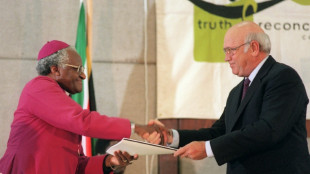 South Africa sets up inquiry into slow apartheid justice
South Africa sets up inquiry into slow apartheid justice
-
Stocks retreat as US GDP slumps rattles confidence
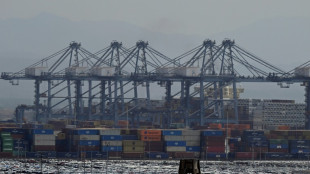
-
 Migrants' dreams buried under rubble after deadly strike on Yemen centre
Migrants' dreams buried under rubble after deadly strike on Yemen centre
-
Trump blames Biden's record after US economy shrinks
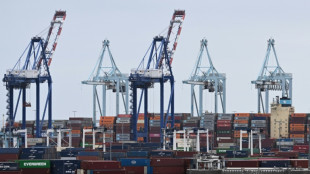
-
 UK scientists fear insect loss as car bug splats fall
UK scientists fear insect loss as car bug splats fall
-
Mexico avoids recession despite tariff uncertainty
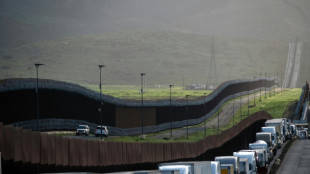
-
 Rwandan awarded for saving grey crowned cranes
Rwandan awarded for saving grey crowned cranes
-
Spurs have 'unbelievable opportunity' for European glory: Postecoglou

-
 Microsoft president urges fast 'resolution' of transatlantic trade tensions
Microsoft president urges fast 'resolution' of transatlantic trade tensions
-
Poppies flourish at Tower of London for WWII anniversary


Do Kwon: S. Korea's crypto 'genius' turned disgraced fugitive
Once hailed as a genius, South Korean entrepreneur Do Kwon -- now facing multiple criminal charges over his failed cryptocurrency -- was a brash industry figure whose fame disintegrated into global notoriety.
After months on the run, the 31-year-old, whose full name is Kwon Do-hyung, was arrested Thursday in Montenegro after being caught trying to catch a flight using fake Costa Rican travel documents.
He is accused of fraud over the dramatic implosion last year of his company Terraform Labs, which wiped out about $40 billion of investors' money and shook global crypto markets.
Immediately after his arrest the United States hit him with a slew of charges over what they called a "multi-billion-dollar crypto asset securities fraud" and South Korea, where he faces separate charges, said it wants to extradite him.
The cryptocurrency he created, an "algorithmic stablecoin" called Terra, was in reality a glorified Ponzi scheme, experts say.
Yet as recently as March 2022, Kwon was being described in glowing South Korean media reports as a "genius" as thousands of private investors lined up to pour cash into his company.
"Kwon and his story are a product of our times," Cho Dong-keun, an economics professor emeritus at Myongji University, told AFP.
"He knew how to win the hearts of those who so desperately wanted to make a fortune in one stroke. He also knew how to exploit their anxiety and turn it into massive profits."
- Elite connections -
Born in 1991, Kwon attended South Korea's elite Daewon Foreign Language High School where, according to a book he wrote about his school days, he founded an English-language student paper and competed in various English debating championships.
He went on to major in computer science at Stanford University in the US, and reportedly interned at Apple and Microsoft before returning to Asia to start his own business.
In 2018, he co-founded Terraform Labs with Daniel Shin -- who is linked to South Korea's elite Samsung family through his uncle -- and developed the TerraUSD and Luna currencies.
He quickly rose to fame, partly thanks to Shin's connections, successfully branding himself as a young industry luminary.
TerraUSD was marketed as a "stablecoin", a type of cryptocurrency which is typically pegged to stable assets such as the US dollar to prevent drastic price fluctuations.
In 2019, he featured in Forbes' 30 under 30 Asia list.
Forbes wrote that Kwon's "price-stable cryptocurrency, or stablecoin, attracted 40 million users to work with the company at launch in January 2018".
"With the aim of building a blockchain-based payment system, Terra has raised $32 million from crypto-giants such as Binance," it said.
- 'S Korean Elizabeth Holmes' -
But experts had long warned Kwon's model was fundamentally flawed, with some outright calling it a Ponzi scheme.
Unlike other stablecoins backed by real-world assets such as cash or gold, TerraUSD was algorithmic -- pegged only to sister currency Luna, using maths and incentive mechanisms to maintain their peg.
"Algorithmic stablecoins like Terra/Luna were doomed from the very beginning," Christian Catalini, founder of MIT's Cryptoeconomics Lab, told AFP.
"Things can work for a while, while the ecosystem is growing, but are destined to run into a death spiral at some point."
A full investigation of Kwon should help clarify what happened when Terra/Luna collapsed, he said, adding this was necessary to improve the crypto industry as a whole.
"We need to make sure that bad actors are not able to use the technology to design scams and perpetuate other forms of fraud or financial crime," he said.
Kwon's impressive rise and precipitous fall are now being compared to those of convicted American fraudster Elizabeth Holmes, the disgraced founder of the medical technology startup Theranos.
Kwon "is just like Holmes, another elite who went to Stanford", the Korea Economic Daily newspaper wrote.
Cory Klippsten, CEO of crypto trading app Swan.com, made a similar parallel on Twitter last year.
Kwon had "major Elizabeth Holmes vibes", he wrote ahead of the collapse. "Creepy levels of cockiness on display, 99.99% of the time means fraud."
Kwon slipped out of South Korea before disaster struck in May last year, and has effectively been in hiding ever since -- even as he claimed on Twitter that he was not "on the run".
South Korea eventually revoked his passport, and asked Interpol to place him on the red notice list.
"A responsible adult and entrepreneur would have stayed and explained," professor Cho at Myongji University said.
"The fact that he tried to avoid authorities by even using forged passports shows his character."
F.Pedersen--AMWN